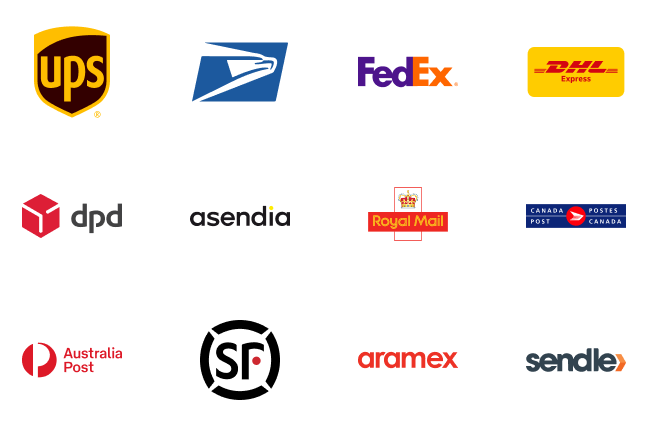BigCommerce and Magento are two of the most popular eCommerce platforms worldwide. Magento currently has more than 250,000 merchants worldwide and accounts for 12% of all eCommerce sites. Coming in as a close second, BigCommerce has 60,000 active users around the globe.
Both platforms are excellent choices to build your online presence, though significant differences exist. For example, BigCommerce is a fully-hosted platform, which means the platform handles all the hosting and software to create your online store.
On the other hand, Magento is an open-source platform and requires you to manage the hosting yourself and most parts of the website building.
This blog will cover all the similarities and differences between BigCommerce vs. Magento to decide which platform works best for you and your business.
What is BigCommerce?
BigCommerce is a fully-hosted eCommerce platform that helps business owners start their online businesses.
Fully-hosted means that the platform has all the necessary tools and features to establish your online business, from hosting and website design to payments, marketing, and SEO tools.
BigCommerce is a Saas, Software as a Solution provider, making it easier for new businesses to start because the platform takes all the software and hosting. Some of the main features of choosing BigCommerce for your business include the following:
- Integrates with shipping software to reach global customers
- 24/7 customer support
- Multi-channel selling
Overall, BigCommerce stores make it easy for new business owners to create online businesses.
What is Magento?
Magento is an open-source eCommerce platform for store owners who have previous coding experience or website-building experience.
Open-source means users can control all aspects of their website, such as the look, functionality, content, and more, with many tools and features. Magento is owned by Adobe which specializes in eCommerce websites and offers features such as the following:
- Built-in functionality for international stores
- Multiple payments features and payment gateways
- Unlimited customization options
- Powerful SEO features
Magento is a customizable platform that's better for larger eCommerce businesses with technical knowledge.
What Are the Differences Between BigCommerce vs. Magento?
BigCommerce and Magento are two of the most popular platforms that vary significantly in user-friendliness and functionality. Since Magento is an open-source platform, it's recommended that you have previous coding and website building experience. This requirement is due to the fact that you'll have to take care of hosting yourself and other necessary software.
On the other hand, BigCommerce is more user-friendly than Magento. This difference is since users don't need to manage hosting, complete website building, and install software like security, fraud detection, etc.
Before we go over the other distinguishing features that set both platforms apart, we'll touch upon the similarities between BigCommerce vs. Magento:
- Built-in features: BigCommerce and Magento offer powerful built-in features such as catalog management, instant purchase, payment methods, integrated checkout, and shipping
- Ability to integrate add-ons: Users can integrate add-on features and plugins for shipping, marketing, or SEO-related services
- Inventory management: Users can add an unlimited number of items to your BigCommerce store or Magento store
- Shipping options: BigCommerce and Magento offer users a variety of shipping options from shipping integrations or dropshipping services that can be downloaded through their app stores
Now, we'll highlight the main differences between BigCommerce and Magento, so you know which platform is better for your online store:
- Hosting: BigCommerce is a hosted eCommerce platform, meaning that you don't need to worry about finding the right hosting provider for your online store. However, Magento requires users to purchase your domain and hosting for Magento Open Source plans.
- Pricing: BigCommerce is cheaper than Magento because Magento requires you to cover all the hosting, security, development teams fees, and design fees. Magento's cost will also vary depending on the complexity of your online store, but BigCommerce is generally cheaper and more affordable for new businesses.
- Annual sales limit: Every BigCommerce plan includes a cap on annual sales, after which you must upgrade your plan. For example, standard plans are limited to $50,000 in sales. On the other hand, Magento doesn't impose any annual sales limit.
- Ease of use: BigCommerce is more user-friendly than Magento. This difference is because Magento is an open-sourced platform and requires previous website-building or coding experience. On the other hand, BigCommerce is a fully-hosted platform with all the necessary features and tools to build your store.
- Design: BigCommerce offers 12 free themes and 50+ paid options that cost between $145 to $235 each. On the other hand, Magento only provides 13 themes and only one free theme. Plus, Magento users will have to pay for a designer or developer for a custom Magento theme which can cost around $5,000.
- User support: BigCommerce offers 24/7 customer support via mobile phone or email. On the other hand, Magento doesn't offer live chat, phone, or email support unless you register for the Magento Commerce plan.
- Payment methods: BigCommerce offers 40+ payment options for your online store like PayPal, Stripe, Amazon Pay, and more, while Magento does offer as many. Magento does support popular payment methods like PayPal and Braintree.
- SEO & marketing: Magento wins on powerful SEO and marketing features to help users optimize their visibility on search engines. Some Magento SEO/marketing features include metadata, personalized URL, canonical tag, sitemap, etc. On the other hand, BigCommerce offers advanced features to help improve the appearance of your websites on search engines like micro-data, 301 redirects, and unique URLs
- Speed & performance: BigCommerce is a fully-hosted eCommerce platform. Users cannot freely customize their site's speed and loading times optimization. However, Magento allows users to select a server and make any changes to improve a site's performance metrics.
- Extensions & apps: BigCommerce offers 850+ apps for users to customize and build their online store. On the other hand, the Magento Marketplace offers $5,000 apps but can cost up to $15,000 since you'll have to make your store from scratch.
Overall, your choice between BigCommerce and Magento comes down to how much expertise you have in either coding or website development. For instance, if you're new to the eCommerce industry, you'll probably want to choose BigCommerce if you're not looking to spend steep startup costs for your BigCommerce store.
Alternatively, Magento remains an excellent option for business owners with an established presence in the eCommerce space and with coding or technical expertise.
Related post: BigCommerce vs. Shopify: Which is Right for Your eCommerce Business
BigCommerce vs. Magento Comparison of Price
BigCommerce vs. Magento varies significantly in price. BigCommerce charges a monthly fee, while Magento doesn't charge a subscription fee. However, you'll likely pay more for your Magento store regarding development, integrations, hosting, and other necessary costs to start your store.
Your Magento store price
Magento doesn't charge a monthly fee subscription similar to how BigCommerce charges this fee to start or build your online store. However, Magento users will ultimately pay more since Magento is an open-source platform.
You'll also have to pay attention to the following features for your Magento store:
- Website theme and design cost
- Third-party apps or extensions
- Hosting fees
- Support and maintenance fees
The cost of your Magento store depends on the features you want for your business. Below is the breakdown of how much your Magento store costs to set up and maintain:
| Fees | Magento Open Source | Magento Commerce | Magento Commerce Cloud |
| Magento License Cost | $0 | $22,000-$125,000 per year | $40,000-$190,000 per year |
| Hosting | $100-$500 per year | $500-$6,500 per year | $0 |
| Domain Name | $10-$400 per year | $10-$400 per year | $10-$400 per year |
| SSL Certificate | $50-$300 per year | $50-$300 per year | $50-$300 per year |
| Design | $0-$5,000+ | $0-$5,000+ | $0-$5,000+ |
| Development | $1,800-$10,000+ | $10,000+ | $10,000+ |
| Extensions | $60-$600 per extension | $60-$600 per extension | $60-$600 per extension |
| Payment Provider Fees | 2.9% + $0.30 per transaction | 2.9% + $0.30 per transaction | 2.9% + $0.30 per transaction |
| SEO & Digital Promotion | $10,000-$40,000 per year | $10,000-$40,000 per year | $10,000-$40,000 per year |
| Total Magento Development Fees | $12,000-$57,000+ | $43,000-$189,000+ | $60,000-$247,000+ |
Your BigCommerce store price
BigCommerce offers three different pricing plans such as the following:
- Standard: $29.95 per month
- Plus: $79.95 per month
- Pro: $299.95 per month
BigCommerce plans also share similarities regarding no additional transaction fees, the ability to sell across multiple sales channels, 24/7 customer support, real-time shipping quotes, and different payment methods.
*See the full breakdown of differences on BigCommere here.
Pros and Cons of Magento vs. BigCommerce
Magento and BigCommerce are excellent options for your online store. However, depending on your needs as an eCommerce merchant, your choice of an eCommerce platform will vary greatly.
Pros & cons of Magento for your online store
Magento offers many advantages for business owners like search engine optimization features and multiple payment options from credit card options to PayPal for users. Below are some of the other features you choose Magento for your online business.
Pros of Magento
- Limitless customization options: Magento offers unlimited customization options to tailor your store to your eCommerce needs. Choose from premade themes or create your custom theme – and choose from integrations and add-on features to scale your business.
- Powerful SEO features: Magento offers built-in SEO capabilities to help you rank higher. Features like SEO-friendly URLs and rich snippets make it easy to increase the quantity of traffic to your Magento store.
- Multiple payment features: Allow customers to pay with whichever payment method they prefer for greater sales, such as PayPal, Braintree, and more
- Built-in functionality for international stores: Reach your global customers with access to powerful features already available through the Magento platform like payment methods, integrated checkout, and shipping options
Cons of Magento
- Complex to set up: Magento requires users to know website building and coding experience since it's an open-source platform
- Costly startup and maintenance fees: Magento stores can cost you at least $12,000 and up to $247,000 to develop your online store
- Lacking full customer support: Magento doesn't offer live chat, phone, or email support unless you register for the Magento Commerce plan.
Pros & cons of BigCommerce for your online store
BigCommerce offers vital features like 24/7 support, the ability to integrate with shipping software, and other built-in features to help start your BigCommerce store. Next, we'll take a look at the pros and cons of BigCommerce so you can decide if Magento or BigCommerce works for you best.
Pros of BigCommerce
- Integrates with shipping software: Integrate your BigCommerce store with top shipping platforms like Easyship for fast and discount-rate shipping. Plus, receive real-time rates at checkout for your online store.
- 24/7 support: Enjoy 24/7 support via phone, live chat, and email for your BigCommerce store
- Zero transaction fees: Enjoy zero transaction fees for purchases made via your BigCommerce site
- Free 15-day trial: Enjoy your first 15 days for free with BigCommerce to see if BigCommerce is suitable for your eCommerce needs
- Integrates with third-party applications: Integrate your BigCommerce store with third-party apps to enhance your customers' experience. BigCommerce offers over 850 apps for users.
- Multi-channel selling: Choose to sell across multiple social media platforms like Instagram, Facebook, and whichever platform you choose.
- Built-in features: BigCommerce comes with built-in features geared towards expanding your eCommerce business like SEO optimization and website customization options
Cons of BigCommerce
- Annual sales limit: BigCommerce puts a cap on yearly sales limits. Standard plans are limited to $50,000 in sales, Plus plans are limited to $180,000 in sales, and Pro plans are limited to $400,000. Anything above the $400,000 threshold is negotiable with BigCommerce under the BigCommerce Enterprise plan.
- Lacks complete control over customization options: BigCommerce is an excellent option for building your online store. However, unlike Magento, you have no control over speed performance, hosting choice, and website customization.
BigCommerce vs. Magento vs. Shopify Comparison
BigCommerce, Magento, and Shopify are popular options for starting your eCommerce business. Shopify and BigCommerce are popular in the SaaS eCommerce space because of their user-friendly interface. However, Magento is more complicated for eCommerce merchants without prior website building experience.
| BigCommerce | Shopify | Magento |
| Pricing | Affordable | Affordable | Expensive |
| Ease of use | Beginner-friendly | Beginner-friendly | Complex for beginners |
| Design/templates | Around 100 free and paid themes | 100+ free and premium themes | 13 themes and one free theme (custom options available) |
| Hosting | Cloud-based | Cloud-based | Open-source (choose from third-party or on-premise) |
| Features | Feature-rich | Feature-rich | Feature-rich |
| Best for: | Small or large eCommerce shops | Small shops wanting to start an online business | Big businesses with lots of resources and prior technical knowledge |
Shopify and BigCommerce are similar in features when choosing between both platforms. However, Magento is better if you're a more significant business with more resources and prior website building or technical knowledge.
Related post: Magento vs. Shopify: What's Best for Your Online Business?
BigCommerce vs. Magento with Easyship
BigCommerce and Magento are both viable options for your online store. The main difference that sets them apart is choosing between an open-source platform vs. a fully-hosted platform and the price.
If you're a small or medium-sized business looking to enter the eCommerce market or looking to cut costs on website development, BigCommerce is the better choice. On the other hand, suppose you're a veteran of the eCommerce industry and have much expertise in website building or coding experience. Then, Magento is probably the best option for you. Magento is also better for those with a bigger budget to create their online store.
Easyship integrates with BigCommerce and Magento, so you can easily create an optimized shipping strategy for your online business. In addition, with Easyship, you gain access to a suite full of benefits and features such as the following:
- Shipping Dashboard: Manage orders and create shipments instantly in the Shipping Dashboard. Plus, keep track of all your delivery lead times in one place for your business.
- Real-Time Shipping Rates at Checkout: Easyship shows the cheapest, fastest, and best value shipping options at your store's checkout. This feature makes it easier to be flexible with your shipping options while letting customers have a choice. Plus, rates at checkout are proven to reduce abandon cart rates.
- Easyship Branding Suite: Easyship provides a delivery experience consistent with your brand. Add your logo and advertising materials to your packing slips, landing pages, and tracking emails.
Ready to ship? Sign up for a FREE Easyship account and create your optimized shipping strategy for your BigCommerce or Magento store
If you found this blog informative, you may enjoy the following:















































.svg)
.svg)






.avif)
.avif)

.avif)
.avif)


.avif)


.avif)










.avif)
.avif)



.avif)
.avif)


.avif)
.avif)


.avif)










.svg)





